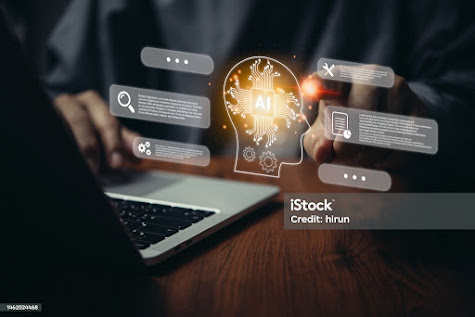How I learn AI
Artificial Intelligence (AI) is one of the most exciting and rapidly advancing fields in technology today. From self-driving cars to virtual personal assistants, AI is changing the way we live, work, and interact with the world. If you're looking to dive into the world of AI and want to learn it fast and easily, you're in the right place. In this article, we'll guide you through the best approach to master AI with efficiency and effectiveness.
1. Understand the Basics
Before diving headfirst into the complexities of AI, it's crucial to build a strong foundation by understanding the basics. AI is a vast field that encompasses machine learning, deep learning, natural language processing, computer vision, and more. Start with the fundamentals of AI, including key concepts and terminology.
2. Online Courses and Tutorials
The internet is a treasure trove of AI resources. Platforms like Coursera, edX, Udemy, and Khan Academy offer numerous AI courses. One of the most popular courses is Andrew Ng's "Machine Learning" on Coursera, which provides a comprehensive introduction to the subject.
3. learn python
4. Explore AI Libraries and Frameworks
Exploring AI Libraries and Frameworks is a pivotal step in your journey to fast-track AI learning.
- Simplify Development: These libraries, such as TensorFlow and PyTorch, streamline the often complex development process. They provide pre-built functions and tools, allowing you to focus on your AI project's unique aspects.
- Vast Community Support: These frameworks have large and active communities. This means you'll find a wealth of resources, from tutorials to forums, where you can seek help, learn from others, and troubleshoot issues quickly.
- Flexibility and Versatility: AI libraries offer a wide range of algorithms and tools for various AI domains, making them adaptable to a myriad of projects, whether in computer vision, natural language processing, or beyond.
- Stay Current: As AI technologies evolve, libraries and frameworks receive frequent updates. By working with these tools, you ensure that your skills and projects remain aligned with the latest advancements in the field, helping you learn AI effectively and efficiently.
The best way to learn AI is by doing. Start with small AI projects, such as image classification or natural language processing tasks. As you gain confidence, take on more complex projects. Online platforms like Kaggle provide datasets and competitions to test your skills.
6. Join AI Communities
Join online AI communities and forums where you can connect with AI enthusiasts and professionals. Platforms like Stack Overflow, Reddit's r/MachineLearning, and GitHub are excellent places to seek advice, share your projects, and learn from others.
7. Read AI Books
Reading AI books is a crucial step in your journey to mastering artificial intelligence swiftly and effortlessly. These books offer comprehensive insights, covering both foundational principles and advanced techniques. Consider titles like "Artificial Intelligence: A Modern Approach" by Stuart Russell and Peter Norvig, a seminal work that provides a solid theoretical foundation. Alternatively, "Python Machine Learning" by Sebastian Raschka and Vahid Mirjalili introduces practical applications and hands-on exercises using Python. These resources help you grasp the nuances of AI, ensuring that you're not just following trends but understanding the fundamental concepts that underpin this transformative technology.
8. Keep Abreast of AI News
The field of AI is continually evolving. Stay updated by following AI news, research publications, and conferences. This keeps you informed about the latest trends and breakthroughs in AI.
9. Online AI Communities
Online AI communities are a pivotal resource for anyone aiming to swiftly and efficiently grasp Artificial Intelligence. These digital hubs, such as Stack Overflow, Reddit's r/MachineLearning, and GitHub, offer a myriad of advantages:
- Knowledge Exchange: Engage with a global community of AI enthusiasts, learning from their expertise while sharing your insights.
- Problem Solving: Pose questions, address challenges, and receive invaluable solutions from experienced AI practitioners.
- Collaboration: Collaborate on AI projects, contributing your skills and benefiting from diverse perspectives.
- Networking: Establish connections with professionals, opening doors to potential job opportunities and collaborations.
- Stay Updated: Remain at the forefront of AI developments by accessing the latest research, trends, and tools.
Online AI communities create a dynamic learning ecosystem, providing swift and accessible knowledge acquisition.
10. Be Patient and Persistent
Learning AI is not a sprint; it's a marathon. Be patient with yourself, as some concepts may seem challenging at first. Persistence is key to mastering AI fast and easily.
In conclusion, the best way to learn artificial intelligence quickly and easily involves a combination of understanding the basics, taking online courses, learning Python, experimenting with projects, and engaging with AI communities. With dedication and a passion for learning, you'll find that AI is an accessible and exciting field to explore and master.







